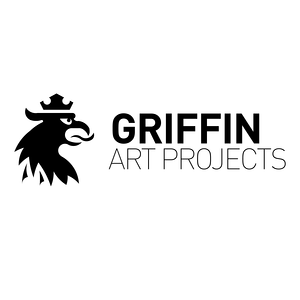July 4–11, 2021, 11am
Presented by Griffin Art Projects and Urban Shaman, Worldings: A Virtual Conference brings together a weekend of collaborative panels facilitated over Zoom exploring the unique artistic perspectives and histories that exist in Canadian and South African experience as seen through the eyes of artists, writers, curators and activists. Coinciding with the presentation of the solo exhibition William Kentridge: The Colander, curated by Lisa Baldissera.
Collaborative supporters include the BAG Factory, a non-profit contemporary visual art organisation in Newtown, Johannesburg, The Centre for the Less Good Idea, an experimental and collaborative arts organization founded by William Kentridge, and the University of Regina’s Department of Media, Art and Performance.
Griffin Art Projects is situated on the traditional, ancestral and unceded territories of the səl̓ilwətaɁɬtəməxʷ (Tsleil-Waututh), Skwxwú7mesh-ulh Temíx̱w (Squamish), šxʷməθkʷəy̓əmaɁɬ təməxʷ (Musqueam), and S’ólh Téméxw (Stó:lō) Nations. We are honoured and grateful to undertake our work here.
Register here: Preview event, July 4 / Conference days, July 9–11
Sunday, July 4
11–11:10am, Spotlight one
11:10am–12:25pm, Preview event: Imperfect Constellations, moderated by Karen Tam
This panel brings together a group of artists and cultural producers engaging with key themes of resilience and resistance from a BIPOC settler perspective.
Friday, July 9
9–9:30am, Introductory remarks
9:35–10:50am, Indigenous Public Art: Places, Histories, and Truths, moderated by Dr. Andrea Walsh
This panel considers the nuances and challenges around creating public art at a time when movements such as LAND BACK, the TRC and the MMIWG Commissions stand powerfully as forces against narrow readings and the direct drawing of lines between art and reconciliation.
11:10am–12:25pm, The Colour Black, moderated by Usha Seejarim
Panelists include Gcotyelwa Mashiqa, who will share key concepts of her recently curated exhibition Black Luminosity, Lawrence Lemaoana, who will share examples of his artistic work questioning the relationship between media and the people of South Africa, and Nkgopoleng Moloi who will share her research into how colour has been employed by Black artists as a critical component of artistic practice.
12:30–1:30pm, Q/A & group discussion
1:30–1:45pm, Closing
Saturday, July 10
9–9:15am, Welcome
9:15–10:30am, The Collapse: Creative Liberation of Collective Making, Moderated by the Centre for the Less Good Idea
In this panel The Centre for the Less Good Idea shares its creative processes from a selection of works exploring historical violence, erasure and omission. Conversation will centre on the notion of ‘collapse’, the generative disintegration of first ideas in the process of making, and the virtues of ‘collapse’ towards future ideas and peripheral perspectives.
10:30–10:40am, Spotlight two
11am–12:15pm, The Rhythm of Homing, moderated by David Garneau
Rather than engage the colonial-centric practice of decolonization, panelists will describe their explorations of non-colonial practices, especially those indigenous to the Great Plains of Turtle Island, the Caribbean, and Africa. Conversation will focus on the experience of bodies in motion, the complexity of home and homing, and extra-rational ways of knowing.
12:20–1:20pm, Q/A & group discussion
1:20–1:35pm, Closing
Sunday, July 11
9–9:15am, Welcome
9:15–10:30am, Bag Factory: 30 Years of Collective Imagination, moderated by the BAG Factory
This discussion will explore the early vision and ethos of the artists who founded the Bag Factory, its resilient position in the urban context of Johannesburg, as well as an overview of current projects and initiatives.
10:30–10:40am, Spotlight three
11am–12:15pm, Mide-wigwas: Birchbark Scrolls from the 18th Century, presented by Urban Shaman
Daina Warren in conversation with Jessica Jacobson-Konefall and Angelina Mcleod will discuss Mide-wigwas: Transmediating, an exhibit that explores how Anishinaabe peoples are reclaiming history and culture.
We acknowledge that we are gathered on ancestral lands, on Treaty One Territory. These lands are the heartland of the Metis people. We acknowledge that our water is sourced from Shoal Lake 40 First Nation.
12:20–1:20pm PST, Q/A & group discussion
1:20–1:35pm PST, Closing
For full information please visit Griffin’s website.















